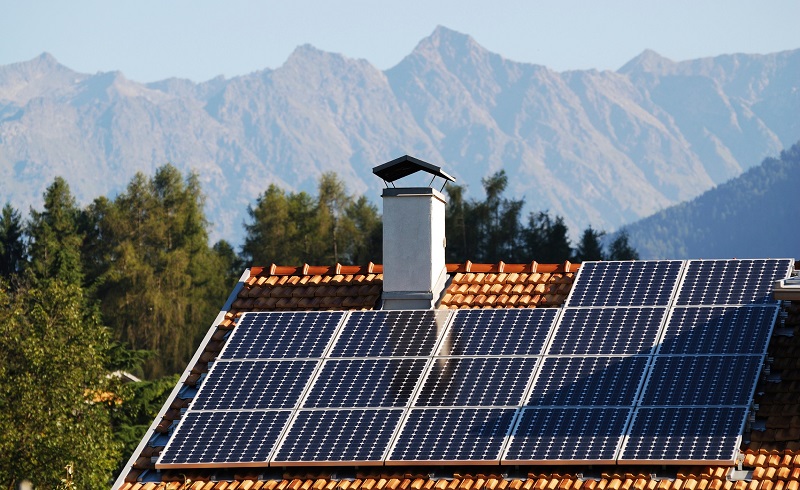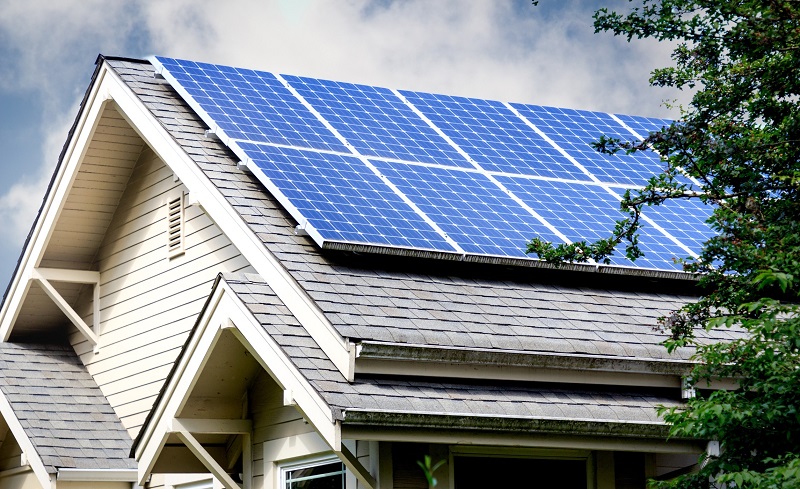Are you thinking about buying a solar panel system for your home? If so, it’s time to learn about Net Energy Metering (NEM).
NEM is an energy buy-back program that helps homeowners using solar energy systems to reduce their monthly utility bills. Net metering policies vary from state to state, but many states have shared policies and practices. Homeowners with solar panels should stay informed about changes to NEM policies because they can affect how much money they make from their panels.
Although these policies are subject to change in the near future, this article provides a helpful overview to better understand how net energy metering can lower your utility bills and improve the value of your solar energy system.
Table of Contents
- What is Net Energy Metering (NEM)?
- How Does Net Energy Metering Work?
- Does My State Offer Net Energy Metering?
- How to Optimize Your Solar Energy Systems for Better NEM Returns
- Net Energy Metering Helps You Get More & Give More from Solar Energy
Also see:
- What to Consider Before Purchasing a Solar Panel System for Your Home
- Need a New Roof? Why You Should Give Solar Shingles a Chance!
- When Can You Expect Your Solar Panel Investment to Break Even?
- Solar Panel Resource for Homeowners
- More Recommended Energy Efficiency Articles
- Related Topics: Solar Energy | Cost Savings | Energy Efficiency | Sustainability | Green Solutions | Taxes | Utilities
What Is Net Energy Metering (NEM)?
In most states with relevant policies, Net Energy Metering (NEM) is a utility billing technique that allows homeowners with renewable energy systems to sell their excess energy back to the grid and remove the financial difference from their monthly utility bill.

Solar panels are the most common energy source used for net energy metering, but other sustainable energy generators like methane digesters and wind-power turbines are also eligible.
The primary benefit of net metering is that it allows you to offset some, if not all, of your monthly energy costs with renewable energy. Utility companies also benefit from NEM because it helps them meet goals for sustainably produced energy.
NEM has also been shown to reduce waste that occurs in energy grids when transporting power from centralized sources.
How Does Net Energy Metering Work?
NEM policies require coordination between three key stakeholders:
- State and Federal Governments
- Local Energy Providers, and
- Private Homeowners
As such, the mechanics of NEM billing may vary. The utility company tracks the most common net energy metering arrangements through your home’s existing energy meter (in some cases, it may need to be updated.)
When your system produces more energy than it consumes, it is sold to the utility company. The utility company then compensates you with credits applied to your home’s energy consumption when your renewable system isn’t active. For example, on cloudy days, your solar panels won’t produce as much energy and your home will need to draw power from the grid.

At the end of an annual billing cycle, the utility company reconciles the difference between energy provided from your home and energy consumed by your home and charges you for the net difference.
Sometimes, your home will have sold more energy than it’s bought, and you’ll be compensated for the surplus.
Buy-All, Sell-All Metering (BASA)
Buy-All, Sell-All metering is a wholesale net metering model.
The structure of this arrangement is similar to other net metering arrangements, but the energy buy-back rate is different. Instead of only buying excess energy, the utility company buys all of the system’s generated energy at a reduced wholesale rate.
Then, they redistribute the energy and charge participating solar homes the retail rate minus the amount of energy they sold to the company.
This model requires two meters:
- One to measure the energy generated, and
- Another to monitor energy consumed
Does My State Offer Net Energy Metering?
It’s very likely that some form of net energy metering is available in your state.
Currently, 42 states offer NEM policies at the state level or on a volunteer basis. Seven states have metering models that offer similar benefits, but don’t meet the criteria for NEM. For example, the BASA model offered in Minnesota compensates homeowners for solar energy production, but isn’t officially defined as a NEM policy.
If you live in a state that doesn’t offer NEM, there are still many state and federal incentives for energy-efficient homes. The most widely known solar incentive program is the Federal Tax Credit for Solar Photovoltaics that can be claimed on federal income taxes for a percentage of the cost of a solar PV system paid for by the taxpayer.
As of August 2023, the credit is equal to 30% of the cost of the system and can be claimed for systems installed on both primary and secondary residences. There is no upper limit on the credit, and it can also be applied to related expenses like installation fees, storage devices, and inspection costs.

How to Optimize Your Solar Energy Systems for Better NEM Returns
NEM can help homeowners save money on their power bills and support a cleaner grid. Those savings can stretch even further by optimizing the performance of your solar panels with these two tactics:
Increase Your Home’s Sun Exposure
Solar panels need direct sunlight to produce energy, so it’s important to make sure that your home’s solar array is positioned for optimal sun exposure.
The following factors can all affect the amount of sunlight that reaches your panels:
- The angle of your roof
- The direction your home faces
- The shade from nearby trees and other structures
However, beware of overexposure to UV rays. Despite recent technological improvements, photovoltaic cells are not immune to the harmful effects of prolonged UV radiation. Having to replace damaged solar panels prematurely will quickly wipe out the cost benefits of NEM billing.
Reduce Your Energy Consumption
Reducing your energy consumption is the best way to increase returns from NEM arrangements. You can do this by making your home more eco-friendly and changing some of your daily habits.
The following tactics are all great ways to reduce your consumption:
- Investing in energy-efficient appliances
- Getting a home energy audit
- Improving your home insulation

Net Energy Metering Helps You Get More & Give More from Solar Energy
Solar net energy metering is an excellent way for homeowners to save money on their electricity bills and do their part to reduce environmental pollution and energy waste.
With solar net energy metering, homeowners can receive bill credits for the excess electricity their solar panels generate. As a next step, homeowners should check to see if their state offers solar net energy metering before investing in solar panels.
Though solar panel installation is a significant upfront investment, with solar net energy metering, homeowners can recoup their investment over time and enjoy long-term savings.
Recommended Energy Efficiency for the Home Reading
- Green Mortgages: An Eco-Friendly Way to Combat Rising Interest Rates
- 7 Tips on How to Make Your Home Up-to-Date & On-Trend
- The New American Home 2022: A Courtyard Design for a Narrow Lot
- The New American Remodel 2022: A Mid-Century “Modernized” Preservation
- Building Technologies for Disaster Resistant Homes
- The New American Remodel 2021: Sustainable & Energy Efficient Beauty
- 10 Exceptional Products in The New American Home 2021
| Purgula is reader-supported. When you click on links to other sites from our website, we may earn affiliate commissions, at no cost to you. If you find our content to be helpful, this is an easy way for you to support our mission. Thanks! Learn more. |







